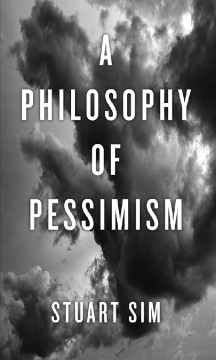
Additional Information
Book Details
Abstract
There are many reasons to despair over the state of the world today: climate change, war, terrorism, social injustice, and an utter failure by our political systems to fix them. Yet there will always be those frustrating optimists who counter such an outlook by citing developments such as modern medicine, democracy, and the global internet as signs that things are, and always have been, on the up and up. This book locks those people in a separate room, shattering their rose-colored glasses to show the tremendous value in keeping the dark side of human affairs at the forefront of our consciousness.
Stuart Sim starts with the proposition that pessimists simply have a more realistic world view. Tracing how pessimism has developed over time and exploring its multifaceted nature, he shows that many thinkers throughout history—including philosophers, theologians, authors, artists, and even scientists—have been pessimists at heart, challenging us to face up to the desperations that define human existence. Spanning cultures and moving across eras, he assembles a grand discourse of pessimism. Ultimately he offers the provocative argument that pessimism should be cultivated and vigorously defended as one of our most useful and ever-relevant dispositions.
“Sim offers a thoughtful and well-articulated sampling of pessimism in western culture . . . expansive, compelling, and thought-provoking.”
— Hans Rollman, PopMatters
“Lucid and wide-ranging book. . . . Revenge tragedies, Vietnam war films, Samuel Beckett’s plays, the novels of William Golding and Philip Roth, Goya’s series The Disasters of War and Picasso’s Guernica—all these works and many others figure in Sim’s analysis of pessimism . . . a meticulous survey.”
— Times Literary Supplement
Stuart Sim is former professor of critical theory at Northumbria University, Newcastle, and a Fellow of the English Association. He is the author of many books, most recently The End of Modernity, Addicted to Profit, and Fifty Key Thinkers in Postmodernism.
